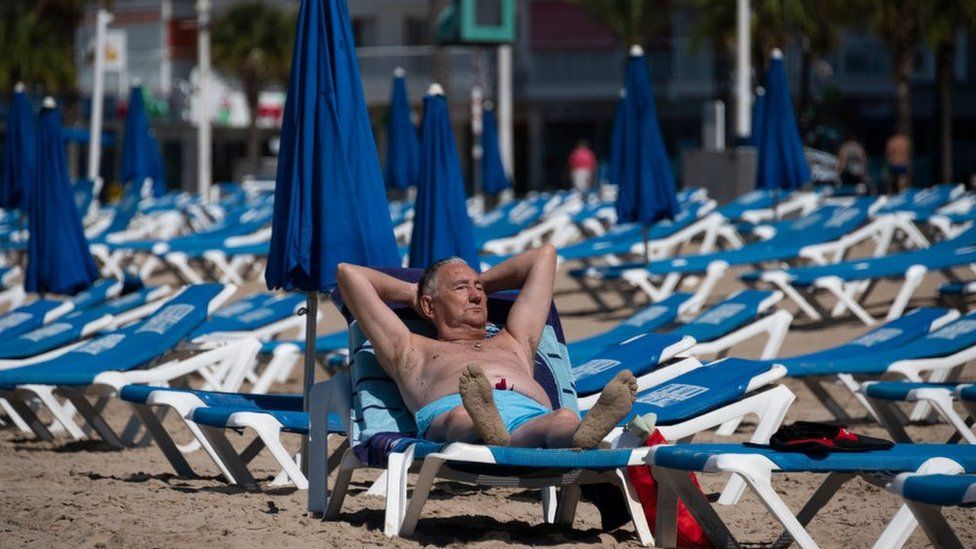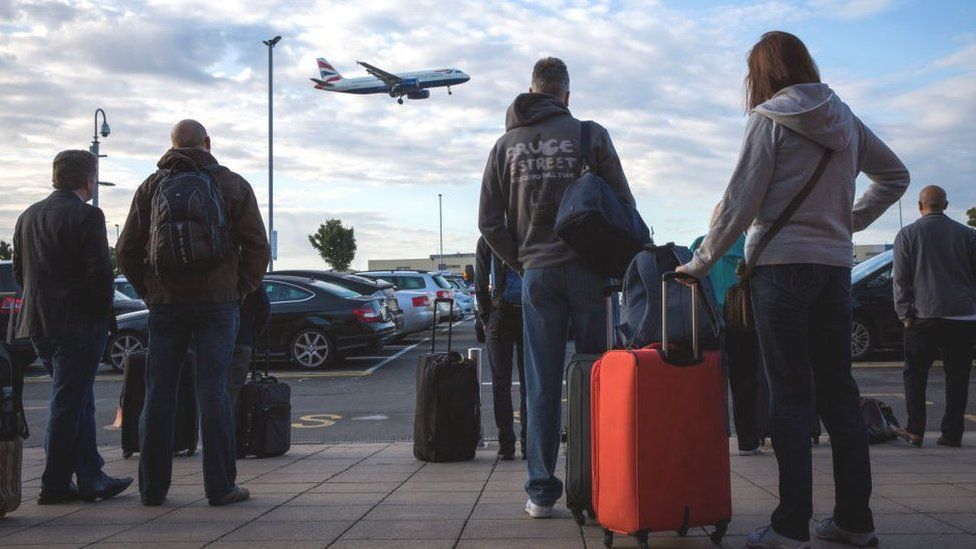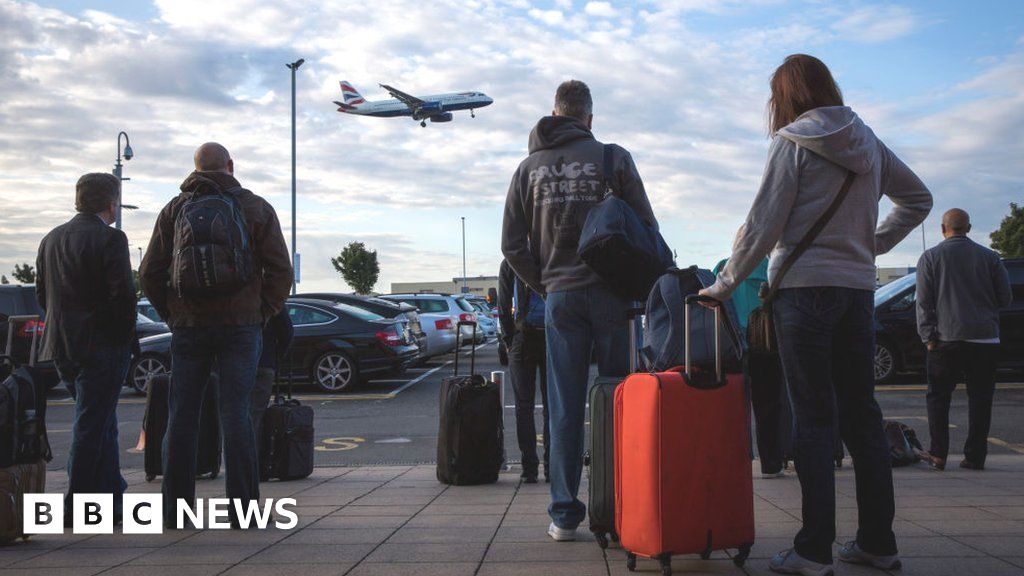
image copyrightGetty Images
The travel industry has expressed disappointment that so few countries are on the UK government’s green list for travel, describing the announcement as “overly cautious”.
Leaving the US off the approved list in particular would mean the UK “falling behind” and risked putting economic recovery at risk, some firms said.
Only 12 destinations are on the “green list” – four of them in Europe.
People are still advised not to travel to countries on the amber or red lists.
The only large European holiday destination on the green list is Portugal.
Israel and Singapore are also included, but Australia and New Zealand – which are approved as safe by the UK government – are not currently allowing in visitors from abroad.
France, Greece, Italy and Spain, normally hugely popular holiday destinations for UK travellers, are not included on the safe list.
“While we were expecting to see just a handful of destinations on the green list, this is an overly cautious start,” said Andrew Flintham, managing director of holiday firm TUI.
Airlines UK described it as “a missed opportunity” and “a reopening of air travel in name only”.
It left the UK “at risk of falling behind,” said Tim Alderslade, chief executive of the body representing UK carriers.
Easyjet chief executive Johan Lundgren said: “The decision to put so few European countries into the green tier is simply not justified by the data or the science and is inconsistent with the approach to reopen the domestic economy.”
UK citizens risked missing out on bookings for hotels if other European tourists were permitted to travel, he added.

image copyrightGetty Images
Making the announcement, Transport Secretary Grant Shapps said the easing of restrictions was “necessarily cautious” in the light of the threat from new variants of Covid-19.
He said the UK’s success in combating the virus was not matched in many other countries.
However he said the list would be reviewed every three weeks by the Joint Biosecurity Centre – the team set up last year to monitor the threat from the virus.
Some firms had hoped the rapid roll out of the vaccination programme in the US would allow summer travel to resume there more quickly.
“There is no reason for the US to be absent from the ‘green’ list. This overly cautious approach fails to reap the benefits of the UK’s successful vaccination programme,” said a spokesperson for Virgin Atlantic, one of the airlines which relies heavily on UK-US traffic.
“A transatlantic travel corridor is vital to deliver a much-needed boost to economic recovery,” he said.
British Airways said it would be putting on additional flights to Portugal to meet an expected boom in demand for holidays there and predicted more countries would be given the green light before the summer.
“What’s clear is that with high levels of vaccination in the UK being matched by other countries, we should see more destinations going ‘green’ before the end of June,” said British Airways’ chief executive Sean Doyle.
“We cannot stress more greatly that the UK urgently needs travel between it and other low-risk countries, like the US, to re-start the economy, support devastated industries and reunite loved ones,” he added.
The change in travel rules applies to England. Scotland, Wales and Northern Ireland have not said when they might ease their strict travel rules.
The World Travel and Tourism Council (WTTC) said the resumption of transatlantic travel “would have thrown a vital lifeline to the sector”.
“While we understand that protecting public health should be the priority, the UK is being too cautious and risks losing its hard-won competitive advantage achieved by the early vaccine rollout by being too slow to allow the significant resumption of international travel,” said WTTC president Gloria Guevera.
The Association of British Travel Agents, Abta, said the list of 12 countries represented “a slower and more cautious approach than previously outlined by the government”, which would delay the industry’s recovery.
“It was always expected that the return to international travel would be gradual, but the government must use the next review to open up travel to more destinations, using the traffic light system to manage risk,” said Mark Tanzer, chief executive of Abta.


